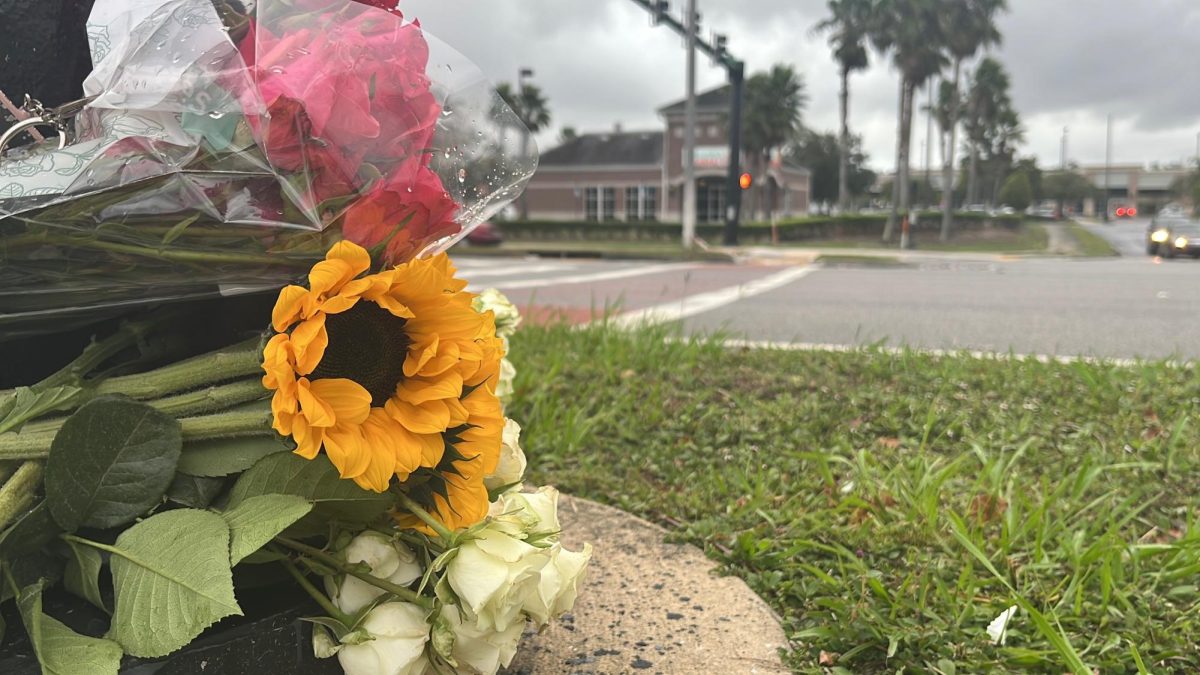Some students will get it, others fearful
The H1N1 vaccine has arrived in parts of Duval County, but due to scarcity of supply, UNF resigned to play the waiting game.
UNF originally asked the Duval County Health Department for 5,000 doses of the vaccine but was told to be more “realistic” about their request, Director of Student Health Services Doreen Perez said.
UNF was designated as a point of distribution site for the vaccine and was ready to begin inoculating students three weeks ago, Perez said.
“We’ve reserved rooms and we had nurses set up, and we were just ready to go,” she said. “We printed off all the literature that you had to get out to the students and the staff before you can give the shot, and that’s all been ready, but no vaccine.”
UNF reduced its request to 500 and will receive shipments of the vaccine as it becomes available. The vaccine has two forms: a traditional shot and a nasal spray. Each will be available to students free of charge when shipment is received.
UNF is not the only institution waiting on the vaccine. Supply is at levels lower than projected and widespread availability is most likely unattainable until early 2010, according to experts.
Questions about the safety and urgency of inoculation have surfaced amid reports of adverse side effects and skepticism about whether the vaccine has been tested sufficiently.
“I’ve heard that it contains traces of mercury — I’ve heard a lot of stories — I’ve heard a lot about how it’s not been thoroughly tested, and I’ve heard some stuff saying that it might be actually worse than the disease itself,” said Thomas Merrit, a UNF public relations junior.
Merritt said he was in no hurry to take the shot and worried that the government used the crisis as a instrument for a power grab.
“I think its over-hyped … they’re making this more of a crisis than it is, and I think that crises are great for government … if [people] are more worried about their life, they’re less worried about their liberty,” he said.
Other students said they believed the H1N1 influenza was cause for concern, but that they weren’t sold on taking the vaccine yet.
“I am a little skeptical about it, I want to see the reaction of other people who take it and hear more about it before actually taking it,” said Shilpa Mailkody, a UNF general business graduate student.
Although generally in favor of preventive measures and vaccinations, Mailkody told the Spinnaker she would not immediately get the shot due to reports she read about negative responses to the vaccine.
This is the same reason that Stefanie Elliot, a UNF communication junior, gave the Spinnaker for her decision to not take the vaccine.
“I think there’s legitimate concern behind [H1N1], but I think the media blows it out of proportion,” Elliott said.
This sentiment of skepticism isn’t lost on Perez, but she resolutely recommended that students take all precautions against the swine flu, including receiving the vaccine.
“I really feel that it’s preventable within this [college] age group through hand-washing and covering your cough, but also [through] the vaccine,” Perez said.
She said the vaccine is safe, tested and nothing to fear.
“This is not the same vaccine they gave out in 1976,” she said. “They have done much more safety testing on this [vaccine].”
The safety assurances of health professionals like Perez is enough for Terry Papadopoulous, a UNF nutrition graduate student.
“I think that there’s enough confidence in the [Centers for Disease Control] and [other] public health agencies that if their scientists have determined that inoculation is the appropriate recommendation, I want to have belief in our system that we can trust them,” he said.
Other students are simply unsure about what to think when it comes to the vaccine.
“Honestly, I don’t know,” said Jimmy Fitzpatrick, a UNF public relations senior. “I’m going to talk to my doctor and my parents first.”
The H1N1 virus is responsible for 112 deaths in Duval County, according to the Duval County Health Department. National estimates vary from several hundred to over one thousand. The center has reported that the influenza is widespread in 46 states. The World Health Organization has officially declared H1N1 to be a pandemic, meaning that it has spread globally.
McClatchy-Tribune Information Services contributed to this article











